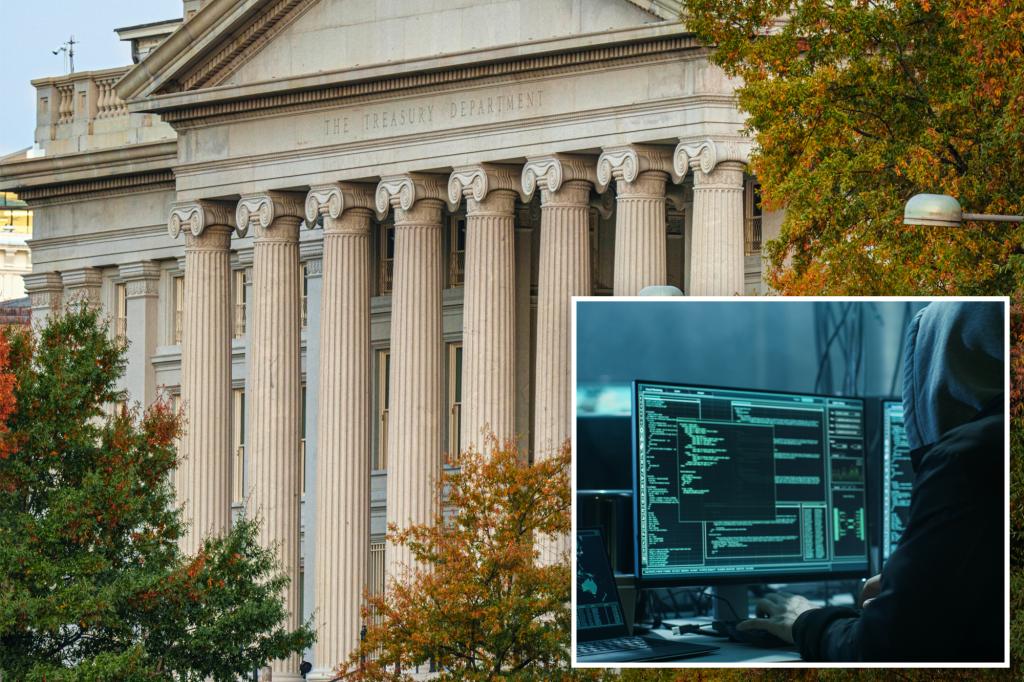The U.S. Treasury Department has taken decisive action against a Beijing-based cybersecurity firm, Integrity Technology Group, Inc., imposing sanctions for its alleged involvement in multiple cyberattacks targeting critical U.S. infrastructure. These sanctions, announced on Friday, specifically link the company to activities attributed to Flax Typhoon, a known Chinese state-sponsored campaign focused on compromising vital U.S. infrastructure. This action underscores the escalating cyber tensions between the United States and China and highlights the growing threat posed by state-sponsored cyber espionage.
The timing of these sanctions follows closely on the heels of a separate cybersecurity incident affecting the U.S. Treasury Department itself. Earlier in the week, the Treasury revealed that Chinese hackers had gained unauthorized access to several of its workstations and unclassified documents. This breach, discovered on December 8th, was facilitated by the compromise of a security key held by BeyondTrust, a third-party software service provider contracted by the Treasury for remote technical support. While the timing of the two events raises questions, the Treasury has stated that the sanctions against Integrity Technology Group are not directly related to the incident involving its own systems.
The sanctions against Integrity Technology Group represent a concrete step by the U.S. government to counter the increasing sophistication and frequency of Chinese cyber espionage activities. By targeting a company directly linked to a state-sponsored campaign, the U.S. is sending a clear message of its intent to hold perpetrators accountable and disrupt their operations. The sanctions themselves are comprehensive, effectively freezing the company’s U.S. assets and prohibiting any financial transactions with American entities. This action aims to cripple the company’s ability to operate within the U.S. financial system and limit its access to crucial resources.
The U.S. government’s response to these cyber threats comes amidst a broader context of escalating cyber tensions between the two nations. The recent revelation of the Salt Typhoon campaign, a separate but equally concerning Chinese cyberespionage operation, further underscores the gravity of the situation. Salt Typhoon, a large-scale and highly sophisticated operation, granted Chinese officials access to the private communications of an unknown number of Americans, raising serious concerns about national security and individual privacy. This campaign demonstrated the advanced capabilities of Chinese cyber actors and their willingness to target sensitive information for strategic advantage.
The sanctions against Integrity Technology Group and the public disclosure of both the Treasury Department breach and the Salt Typhoon campaign highlight the multifaceted challenge posed by Chinese state-sponsored cyber activity. The U.S. faces a complex landscape of cyber threats, ranging from targeted attacks against critical infrastructure to widespread espionage campaigns aimed at stealing sensitive information. The response to these threats requires a comprehensive strategy that combines defensive measures, such as strengthening cybersecurity protocols and improving information sharing, with offensive actions, including sanctions and diplomatic pressure.
The U.S. government’s ongoing efforts to address these cyber threats emphasize the importance of international cooperation and the need for a robust cybersecurity framework. As cyberattacks become increasingly sophisticated and interconnected, no single nation can effectively combat them alone. Collaboration between governments, private sector entities, and international organizations is crucial to sharing information, developing best practices, and coordinating responses to cyber threats. The sanctions against Integrity Technology Group represent one piece of a larger puzzle in the ongoing effort to secure cyberspace and protect critical infrastructure, sensitive information, and individual privacy from state-sponsored cyberattacks. The incident underscores the urgent need for continued investment in cybersecurity capabilities and a concerted effort to deter malicious cyber activity by holding perpetrators accountable.










